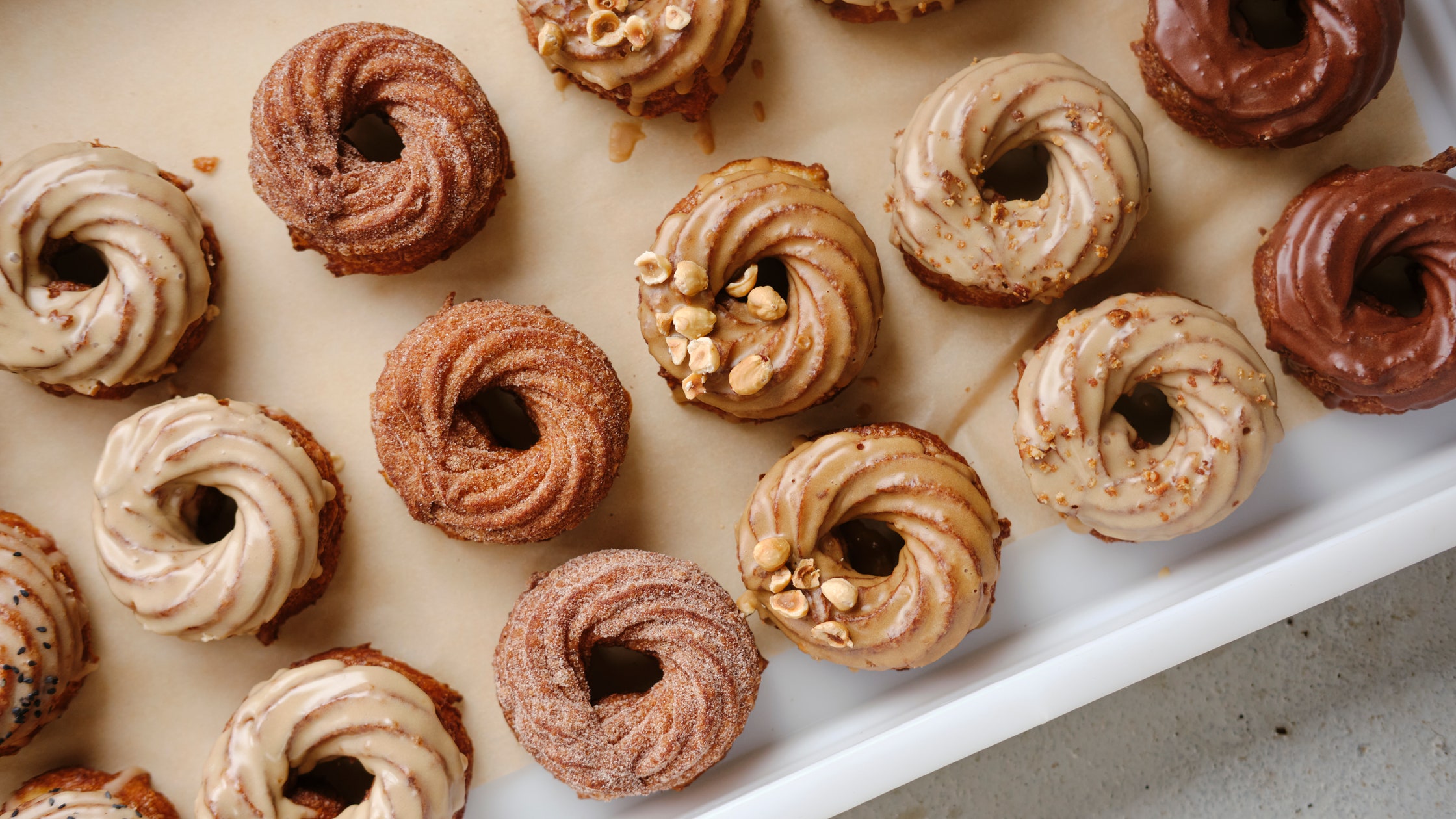The Rise of Independent Bakeries in the UK
8 July 2024
It has been remarkable to witness the rise of independent bakeries across the country over the last few years. Being confined to our homes during the global pandemic seems to have reignited a passion for wholesome food products and practices. Worldwide, people found comfort in the simple act of nurturing a sourdough starter and baking the perfect banana bread. There is something therapeutic about making your own sustenance. Baking is more popular than ever before, and nourishing our bodies with high-quality bread and pastries feels like a small but precious necessity.
This enthusiasm is part of a broader growing interest in slower lifestyles, with increased attention to craftsmanship, growing your own food, home fermenting, and shopping for ultra-local British ingredients from independent producers. Pubs and alcohol consumption are on the decline, while bakery and coffee shop culture continues to soar. Social media further fuels the trend, with elaborate pastries and loaves produced as art objects regularly going viral. There is a communal investment in the bakery boom, with many recent start-ups encouraging community support for their ventures, creating a sense of attachment before these businesses even open their doors.
My dedication to researching this topic has allowed me to observe these bakeries firsthand. It was an exciting privilege to explore various independent bakeries, particularly with family and friends, who often stand in rainy queues alongside me. It was a challenging task to narrow down my extensive research list to just 62 bakeries; in truth, many more warrant a visit across the British Isles. My primary focus was on bakeries worth a detour, often stocking excellent bread and/or viennoiserie.
Growing up in a large French family, my love for bakeries ignited during long, hot summers spent in Provence, where fresh pain au chocolat awaited as a reward for early morning antique market trips with my grandparents. This addiction to quality pastries has continued to flourish. Therefore, while Britain’s culinary landscape boasts a varied and diverse range of bakeries and traditions, my focus was on the emerging art of viennoiserie, which shows no signs of slowing down.
Everyone has their favorite bakery, often the one closest to home, and for good reason—nothing tastes better than freshly baked goods. The bakeries I explored are noteworthy for their imaginative flavors and ethical practices. Some are producing seriously creative and unusual bakes—like Toklas with its Bourbon Peach Melba Danish or Toad’s surprisingly delicious Beef Rendang croissant—while others excel in classics.
Some establishments, like Harts in Bristol, lavish their products with cultured butter, while others, such as all-vegan Bandit, exclude it altogether. “We use butter from the Edinburgh Butter Co. It’s really amazing quality, British-made cultured butter that has a wonderful flavor and texture, a key ingredient in our laminated doughs,” comments Laura Hart, who co-owns Harts with her husband. “When people are more cautious with their spending, small treats like coffees and pastries feel particularly special and accessible.”
All these bakeries create unique offerings that are nearly impossible to replicate at home. Crafting a standard croissant with expertly laminated pastry takes about 3-4 days, along with regulated temperatures and a good deal of physical effort. It’s no wonder we gravitate towards the French style of baking rather than more traditional British scones, cakes, and buns.
Whether you’re located in bustling cities or quiet towns, there’s likely an artisan bakery waiting to be discovered nearby. The locations can often be unexpected—I have spent hours trekking across the country discovering bakeries located in industrial estates, farmer’s barns, or even within five-star hotels. It’s heartening to see bakeries that have been family-owned for generations alongside those that emerged as a response to the Covid pandemic.
For instance, Chatsworth Bakehouse started as a community-driven venture in response to the pandemic. Founder Sian Evans explains, “We began as an honesty bakery from our flat, baking for our neighbors in exchange for donations, which we gave to local causes. This initiative cultivated a real sense of community during a time of isolation.”
As they quickly adapted to the challenges presented by Covid, Sian and her partner started baking sandwiches along with their baked goods. “Our little red shop has been growing steadily since September 2021, and we are excited to be opening a second space soon, just three doors down,” she shares enthusiastically.
From grab-and-go services to inviting cafes where you can relax with a newspaper and coffee, bakeries vary widely in their offerings. Artisan bakeries are often small, with just a baker or two working tirelessly through the night to bring these desirable treats to life. Regardless of size, each one reflects a genuine passion for the craft of baking. Given the dedication involved in creating even a humble croissant, queuing for these delicious rewards feels entirely justified.
Milly Kenny-Ryder is a food and travel writer and photographer based in London.




